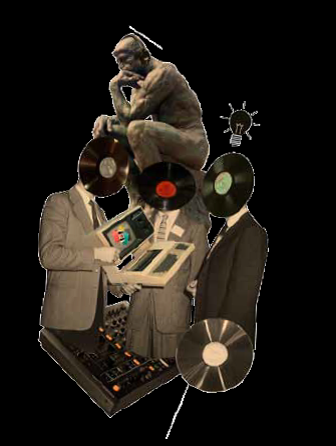
It is not internet piracy or declining CD sales that are the real problems of the music industry today. The musicians and composers have got a lot of new opportunities that are sadly overlooked by many. ISE researcher Rasmus Rex Pedersen explains this in a recent article in the magazine of the association of Danish composers and song writers.
In the article, Rasmus Rex Pedersen explains how the debates about digitization in the music industry the last ten years have been focused on the transition from physical to digital distribution. This has led to stubborn reports about a music industry in a state of crisis. But it has overlooked how digitization is the cause far more fundamental changes of the industry; changes in how music is produced, which influence the basic conditions for making a living as a professional musician.
It is true, because of increased competition from other composers and musicians the structure in the music business has changed. The record companies’ impaired position means that they to a large extent try to move economical risk to the artists. One example of this is that the record companies are less likely to finance recording sessions and productions as they were before. Hence many musicians have now (often involuntarily) become self-employed in their own little companies. And this is where the difference between amateurs and professionals become important. You still don’t have to also be an accountant or a bookkeeper to become a professional musician. But in the current situation with record companies being less likely to spend resources on developing business models for new artists from the bottom up, it is a strong force to be conscious about the fact that somebody has to take care of this.
In many ways though, it has become easier and cheaper to produce music, why more now do. Hence, from 2007 to 2011, the number of releases in a year that are registered with Gramex – the Danish collecting society for record companies and performing artists – has doubled, and from 2004 to 2010 the number of authors who receives payment from Koda – the collecting society for songwriters, producers and publishers- has gone up by 30%. This means of course that there are many more to share the income of the music industry, and even though there also will be more to share, it does not necessarily mean a bigger piece of the pie for every individual.
Which kind of musicians will then win in the new reality of the industrialized music industry? We have good reasons to think that the composers and musicians who are first to adopt the new possibilities and also dare to think their music as a business with all that this entails will also be the ones who will first be recognized by the hungry audience which is willing and ready to spend money on new music and do it every day!
Read the whole article by Rasmus Rex Pedersen HERE (in Danish), or contact him for more info at rasmusr@ruc.dk.
